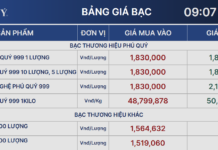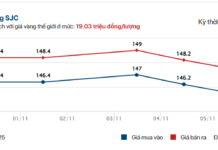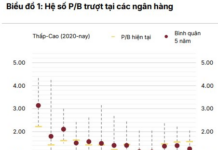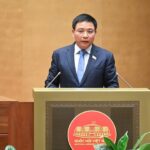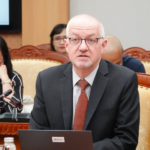“In cases where banks must share a portion of the risk, what should the ratio be? There needs to be a provision in the law or a directive from the Government to issue a decree,” he added.
Specifically, on the morning of November 3rd, the National Assembly discussed in groups four draft laws amending and supplementing certain provisions of the Law on Public Debt Management, the Insurance Business Law, the Statistics Law, and the Price Law.
Commenting on the Law on Public Debt Management, National Assembly Chairman Trần Thanh Mẫn stated that the law has brought about significant changes in public debt management, with government debt consistently below the permitted limit, indicating relatively effective debt management.
However, there is a need for comprehensive amendments to the Law on Public Debt Management, following an expedited procedure at this session, to ensure synchronized decentralization and authorization with related laws, enhance administrative procedure reforms, and accelerate the progress of projects using foreign loans. This is particularly important given the implementation of the two-tier local government structure, where many ODA and foreign loan projects are at the commune level.
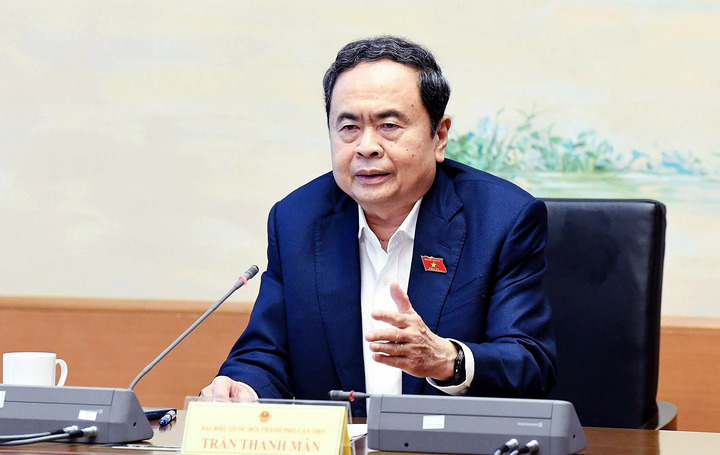
National Assembly Chairman Trần Thanh Mẫn. (Photo: National Assembly Media)
Accordingly, the National Assembly Chairman agreed with the proposed amendments and the content of the draft law, aimed at enhancing the autonomy and accountability of local governments in budget execution. Regarding the allocation of ODA and preferential foreign loans, the draft law stipulates that in cases of grants to provincial People’s Committees and public service units, they may be re-lent.
He requested the Government to strictly regulate the conditions, allocation ratios, and assess the impact on the central budget. As local governments will increasingly propose foreign loans, this will place a greater burden on the central budget, necessitating oversight and sanctions to ensure tight management of these loans.
Furthermore, ODA loans require counterpart funds and government guarantees. While localities with favorable conditions can easily arrange counterpart funds, those facing difficulties require 100% support from the central government. Therefore, detailed regulations are needed for coordination between the central and local governments in fund allocation.
Regarding the lending method, the draft law adds a provision that commercial banks will provide loans without bearing credit risk. The National Assembly Chairman emphasized the need for a thorough impact assessment, as lending without bearing credit risk could lead to lax loan appraisal procedures and borrower selection, creating significant risks that state agencies would have to bear.
He pointed out that lending without ensuring effectiveness and lacking oversight of loan usage would affect debt repayment capacity and public debt safety. “The biggest concern is that the borrowed funds might be used for other purposes, with banks failing to provide guidance, inspection, and supervision,” the National Assembly Chairman stressed.
Therefore, he proposed clarifying the responsibility of commercial banks in cases of loan default. If banks are to share a portion of the risk, what should the ratio be? There needs to be a provision in the law or a directive from the Government to issue a decree.
The National Assembly Chairman also mentioned the need to definitively address the Can Tho Oncology Hospital project using Hungarian loan funds.
“The project began in 2009, but due to procedural issues, it only started implementation in 2016 and has now been ongoing for nearly 9 years. The basic construction is about 80% complete, but the equipment and machinery have been stalled for the past 4 years,” the National Assembly Chairman said.
He further shared: “I have inspected the site multiple times. Recently, the Prime Minister also visited and saw moss and algae growth. Therefore, it is necessary to complete the legal procedures to terminate this ODA project and switch to using the state budget to support and complete the project, putting this 500-bed hospital into operation by November 2026. The current Oncology Hospital is very cramped and overloaded, with patients having to go to Ho Chi Minh City for treatment, which is also overloaded.”
The National Assembly Chairman once again emphasized the need for transparency, openness, proactiveness, and efficiency in the use and management of public debt.
In the context of implementing major projects such as the North-South high-speed railway, which requires significant capital, Chairman Mẫn suggested a comprehensive review of central and local government loans to amend the law appropriately. This will ensure both infrastructure development and public debt safety, contributing to achieving the goal of double-digit growth by 2030 and the vision for 2045.
Finance Minister: Numerous ODA Projects Delayed, Processing Time Doubles or Triples International Standards
Finance Minister Nguyen Van Thang emphasized the urgent need to amend the Public Debt Management Law to address existing challenges in the management and utilization of borrowed capital.
Vietnam’s Public Debt Management: A Stellar Performance, Says World Bank
The World Bank’s report applauds Vietnam’s remarkable progress in enhancing its legal framework to effectively manage public debt. The country’s efforts to strengthen its debt management practices have been recognized, with its legal framework now serving as a solid foundation for sustainable debt management. Vietnam’s dedication to improving its financial systems is a testament to its commitment to economic stability and long-term growth.
The Race to Build HCMC’s Metro Line 2: Unveiling the $2 Billion Project
The Ho Chi Minh City administration has made a strategic decision to utilize its own budget to construct the highly-anticipated Metro Line 2, connecting Ben Thanh and Tham Luong. This marks a shift from the previous plan of relying on ODA loans, showcasing the city’s commitment to taking charge of its infrastructure development.
The Metro Line: A Vision for Progress
A proposal to bring progress and development to the city, with a new vision for the Metro Ben Thanh – Tham Luong line, now to be realized with a government-funded budget.
The Ho Chi Minh City authorities have announced that the 11-kilometer Ben Thanh – Tham Luong section of the Metro Line 2 will now be funded by the state budget, rather than through ODA capital as previously planned. This shift in funding sources underscores the government’s commitment to modernizing the city’s transport infrastructure and creating a seamless, efficient, and world-class metro system.

